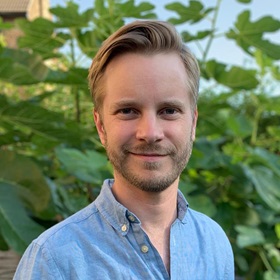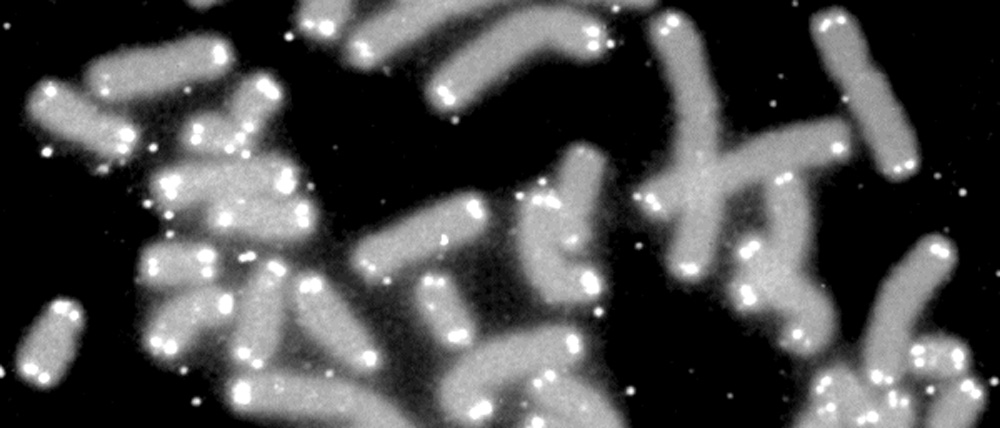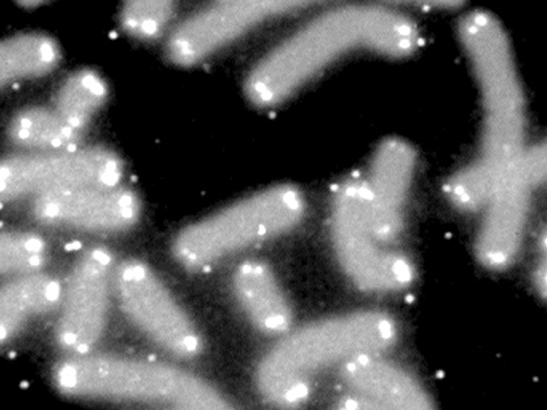Telomere Biology Group
Dr Max Douglas's group is using reconstitution biochemistry and genetics to understand how telomeres are inherited from one generation of cells to the next.
Research, projects and publications in this group
Our lab studies telomere replication using a multidisciplinary approach that combines biochemistry, biophysics and genetics. The molecular insights we gain will help us better understand, and ideally treat, human diseases such as cancer.
Dr Max Douglas
Group Leader:
Telomere Biology
Dr Max Douglas leads the Telomere Biology Group at the ICR. He is the holder of the CRUK Career Development Fellowship and his research focuses on the replication and processing of telomeres.
Researchers in this group
Dr Max Douglas's group have written 14 publications
Most recent new publication 5/2025
See all their publicationsTelomeres are nucleoprotein caps that protect the ends of eukaryotic chromosomes from repair processes and DNA damage. Each cell cycle, these complex, dynamic structures are copied and reassembled through a process called telomere replication, which ensures that all chromosome ends remain properly protected each time a cell divides. Defects in this process are associated with a range of human diseases including bone marrow failure, and essentially all incidents of cancer.
Decades of genetic studies have identified the key players in telomere replication, but an integrated, molecular view of this process is currently lacking.
Our lab studies telomere replication using a multidisciplinary approach that combines biochemistry, biophysics and genetics (see for example, Douglas et al, Nature, 2018).
We use reconstituted telomeric templates in combination with in vitro assays for DNA replication and telomere processing steps to examine:
- How telomeres are copied semi-conservatively and DNA replication terminates at the chromosome end.
- How replicated telomeres are processed and extended, reforming structured caps of the appropriate length.
The molecular insights we gain will help us better understand, and ideally treat, human diseases such as cancer.
 .
.

